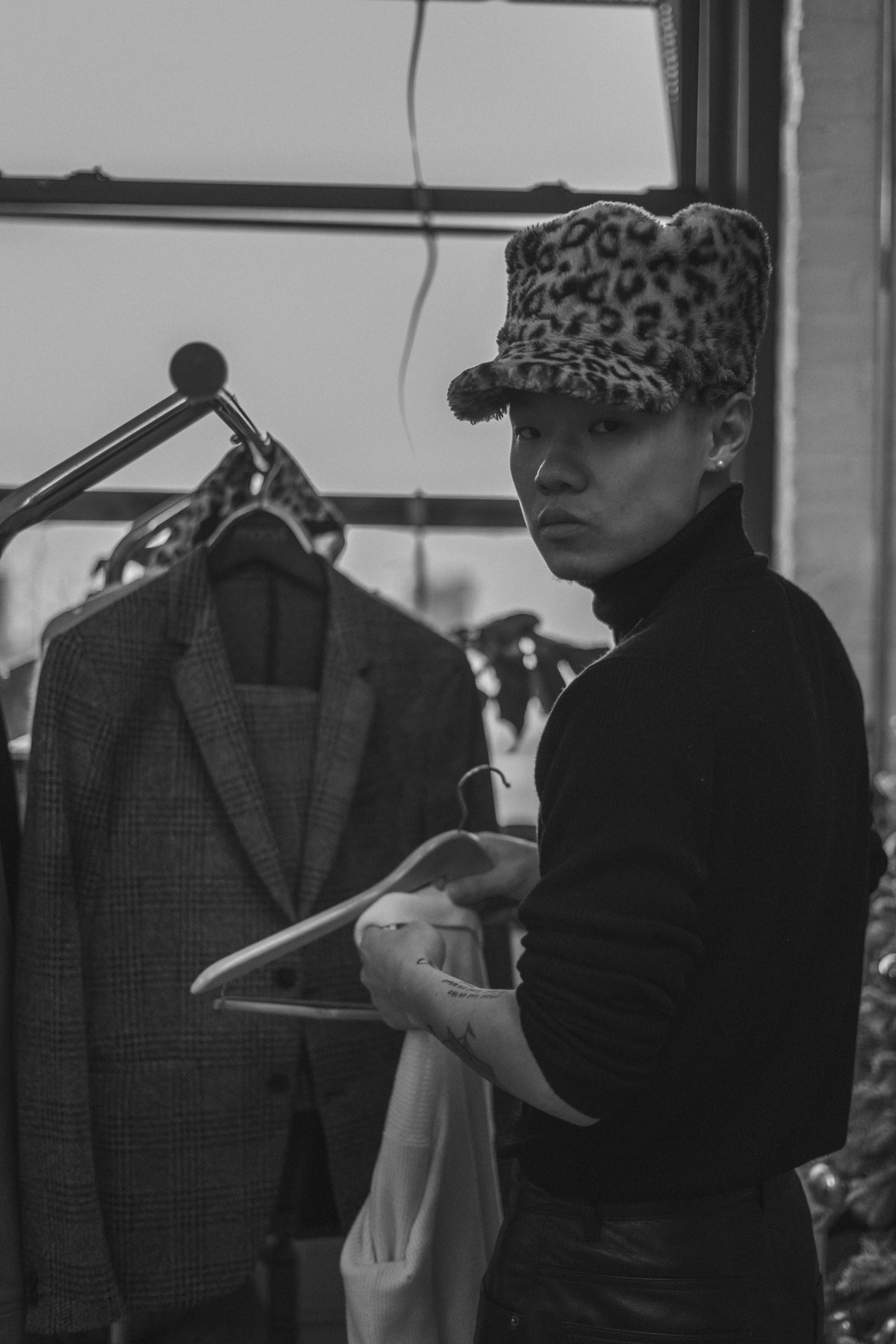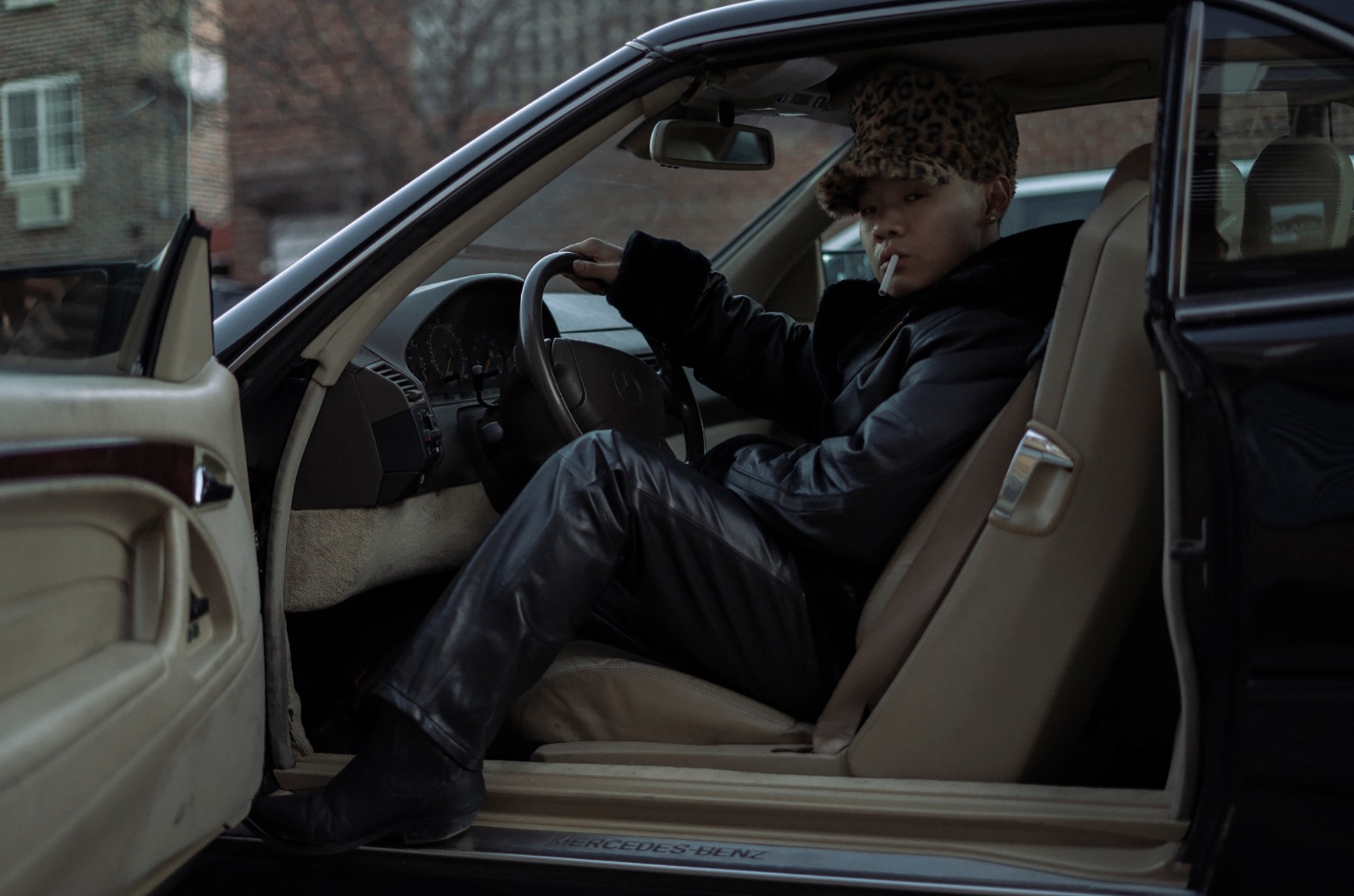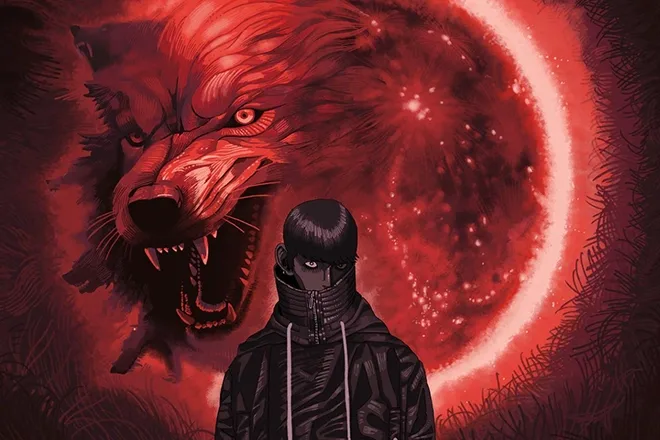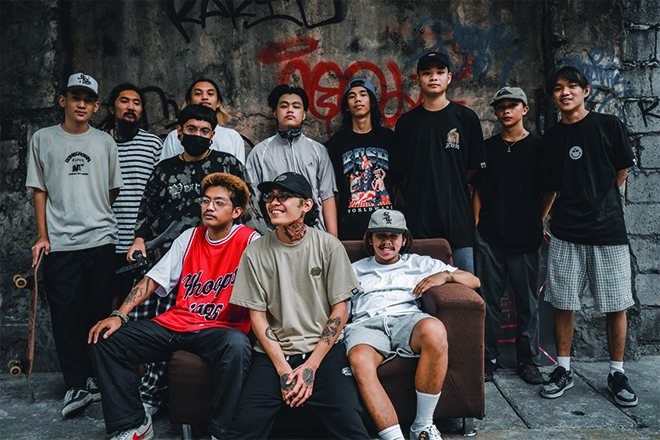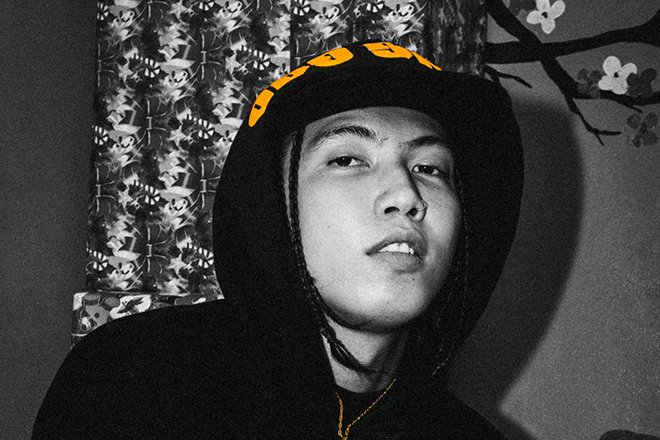Interview
Bohan Phoenix 'The rush I never knew I craved'
An East-West journey through Bohan Phoenix’s Hip Hop genesis
Bohan Phoenix is a natural fit to be the inaugural LiFTED cover superstar because he epitomizes what this new online publication is all about - Asian Hip Hop with an East-West swagger and a style that doesn’t follow any fleeting trends.
Moreover, Bohan is an original. He was born in China but came up in the US, and it’s there that he became attracted to Hip Hop culture like a magnet to steel and started rhyming. After initially spitting his rhymes in English, Bohan started tossing out terms and phrases in his native Mandarin and soon had a feel for how natural it came. Friends and collaborators noticed the immediacy and depth his rhyming took on in his native tongue, too, and they encouraged him to go down this path.
Eventually, Bohan returned to China and set up camp in Chengdu, where he fell in with Hip Hop stalwarts like Howie Lee and newcomers like the Higher Brothers. He made tracks and performed with the Higher Brothers and even helped get them signed to 88 Rising in the heady days of Chinese Hip Hop when The Rap of China TV show took the country, and many other parts of the world by storm.
Despite the offers, Bohan didn’t sign on the dotted line. He kept doing his thing with his trusted manager, and sometimes DJ, Allyson Toy. Bohan continued releasing his own singles and doing his own tours. When The Rap of China came calling he declined, having seen how all-encompassing the deal was. He stayed independent in mind and spirit. When they asked him again, he said no thanks. By then, Bohan had been a first-hand witness to all the hype and drama that surrounded rappers like Gai and PG One in the Chinese media, and he wasn’t about that.
Bohan Phoenix could be a wealthy star in China right now if he’d followed a different path, but that would have deviated from the mission he had in mind—bridging the gap between US and Asian Hip Hop in an authentic and organic way. Not through PR stunts and contrived collabs, but through genuine relationships and common goals. It may take some time as Hip Hop is a money game on both sides of the divide, but Bohan is in it to win it. He’s real seeking real, and there’s a lot of real in Hip Hop. We salute Bohan Phoenix for being able to see past the blinding lights of fame and keep his eyes on the path and the prize.
We sat down with Bohan Phoenix to dig a bit deeper into his story and what we can look forward to for 2021 and beyond.
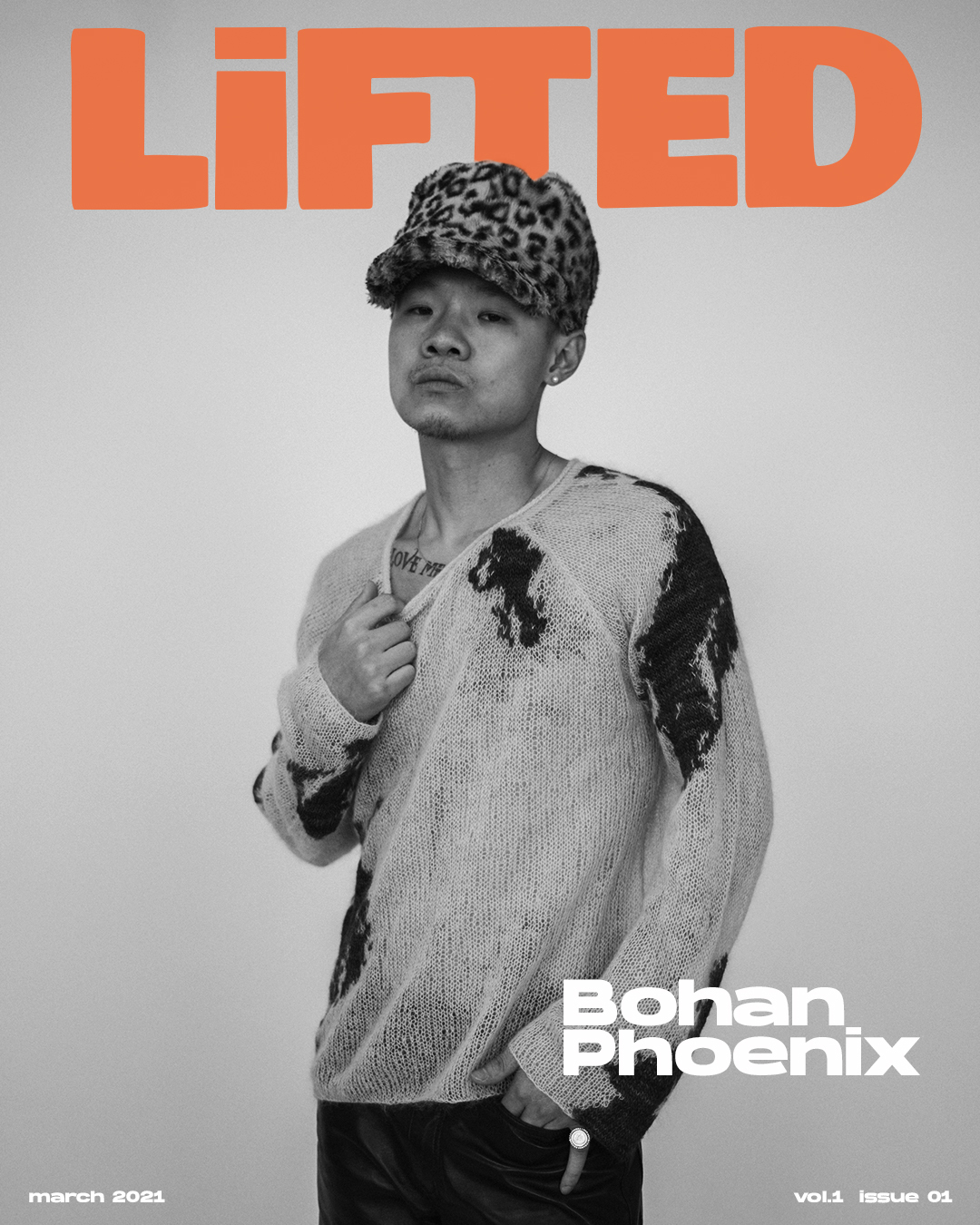
AT WHAT AGE DID YOU FIRST DISCOVER HIP HOP, AND WHAT WAS IT ABOUT THE MUSIC AND CULTURE THAT ATTRACTED YOU?
I first came across Hip Hop purely by accident, when I moved to the States at age 11 back in 2003. I didn’t speak a word of English, so my mother thought it’d be a good idea for me to just watch movies and cartoons and mimic how they talked and pronounced things. Around 2005, one of these movies happened to be 8 Mile.
At first, I can’t even say it was the music or the culture. It was really watching Eminem’s story. This white guy in a predominately black world was an outcast but he was able to find his confidence and identity through this music. By expressing himself he had people relating to him. For a kid just moving to the States from China, where I grew up in rural Yichang with my grandparents, I felt lost, too. I felt like an outcast, and the story of 8 Mile and Eminem is what drew me close to Hip Hop, and I thought it could give me the same confidence and the same feeling it had given him.
Slowly my obsession with Eminem branched out to listening to the artists he would rap about or talk about: Pac, Snoop, BIG, Rakim, and so on. Before I knew it, Hip Hop was all that I cared about.
WHAT DID IT FEEL LIKE WHEN YOU FIRST STARTED RHYMING IN YOUR OWN WORDS?
I remember distinctly my first time writing rhymes. It was on top of Eminem instrumentals that I had gotten off Limewire, an illegal music pirating service at the time. I was writing my rhymes in the exact same flow and cadence as he was. I had no concept of how to build my own songs, but I knew I loved how he sounded over the beats, so I wanted to imitate him. Even the subject matter, I exaggerated things in my life so it could sound crazy or relatable like his songs were. I wanted to feel how he felt, I wanted the validation, from myself and other people. So, when I first started jotting down words, even though I knew I was imitating the flow, I still felt like for the first time I had created something unique, and something to call my own. The feeling was unlike any other, and completely addicting. After that it was on.
IS THERE A TIME A SPECIFIC DAY, TIME, OR PLACE WHERE YOU SAID TO YOURSELF, ‘I NEED TO BE INVOLVED IN HIP HOP SOMEHOW?’
There were two stages really, when this happened. The first was around 2008 with me and my boy Faisal. We called ourselves Hiphopaganda. My name was Raw Data and his name was Faisal Faiz. We had saved some money, bought some beats from a producer in Boston and recorded a couple demos in the producers closet. I’d say that was the first moment for me. I remember hearing myself back on these demos and thinking, “Wow, I sound fucking awesome!” even though listening back now to those songs it's absolutely 100% cringe.
The second pivot point was when I joined a gospel choir in high school and I got close to live music, and my choir director not only allowed me, but actually encouraged me to rap in the choir at school concerts. The choir would back me up vocally as I’d be rapping a verse I wrote about God or love, and all the goodness of the world. Being on that stage, rapping for the first time live with all my friends backing me up, that gave me a pep in my step, the confidence that I needed, and a rush of adrenaline that I never knew I craved.
WHEN DID YOU REALIZE THAT YOU COULD RAP IN CHINESE? WAS THAT A LIBERATING FEELING?
As with everything you learn first by imitating. So for a while there I was trying to impress people with how clever I could rap with punchlines and metaphors, trying to get close to the levels of my idols. But of course, no one was going to have better punchlines than Lil Wayne, and no one is going to wordplay better than Eminem, but it was still something to shoot for.
When I got to New York in 2010, I dropped 41 songs that year. I was hitting all the open mics, even doing a lot of Amateur Night at the Apollo, which I never got booed off by the way, and I thought I was going to blow up right then and there. But even though I was starting to earn the respect of the fellow open mic performers and what not, nothing was really happening with my ‘career.’ Suddenly I realized I wasn’t doing one of the most important aspects of Hip Hop—being myself. I wanted to be like Em, I wanted to be like Wayne, but I didn’t want to be myself. So, that’s when I started adding bits and pieces of Chinese language, Asian instruments, and eventually my own narrative, and ironically that’s when people really started paying attention. Even though they didn’t understand everything I was saying, they could feel I was trying to convey something that hadn’t been done before. It was a liberating feeling for sure, and exciting. Suddenly I felt like I was rapping for the first time, that the imitation phase was over, and maybe I was onto something.
DID YOU EVER DO RAP BATTLES?
I never actually battled competitively like on stage. I used to watch MC Jin smoke emcees and I was like nah, I know my strengths and it’s definitely not in the battle rap world. I was probably staying away intentionally because I was very conscious about protecting my confidence, and I knew I would have a hard time so I remained focused on writing and rhyming. I did battle with my homies just freestyling or just cyphering verses and sometimes we’d take shots at each other back and forth but it was pretty much fun and games, never any pressure or concept of winning or losing.
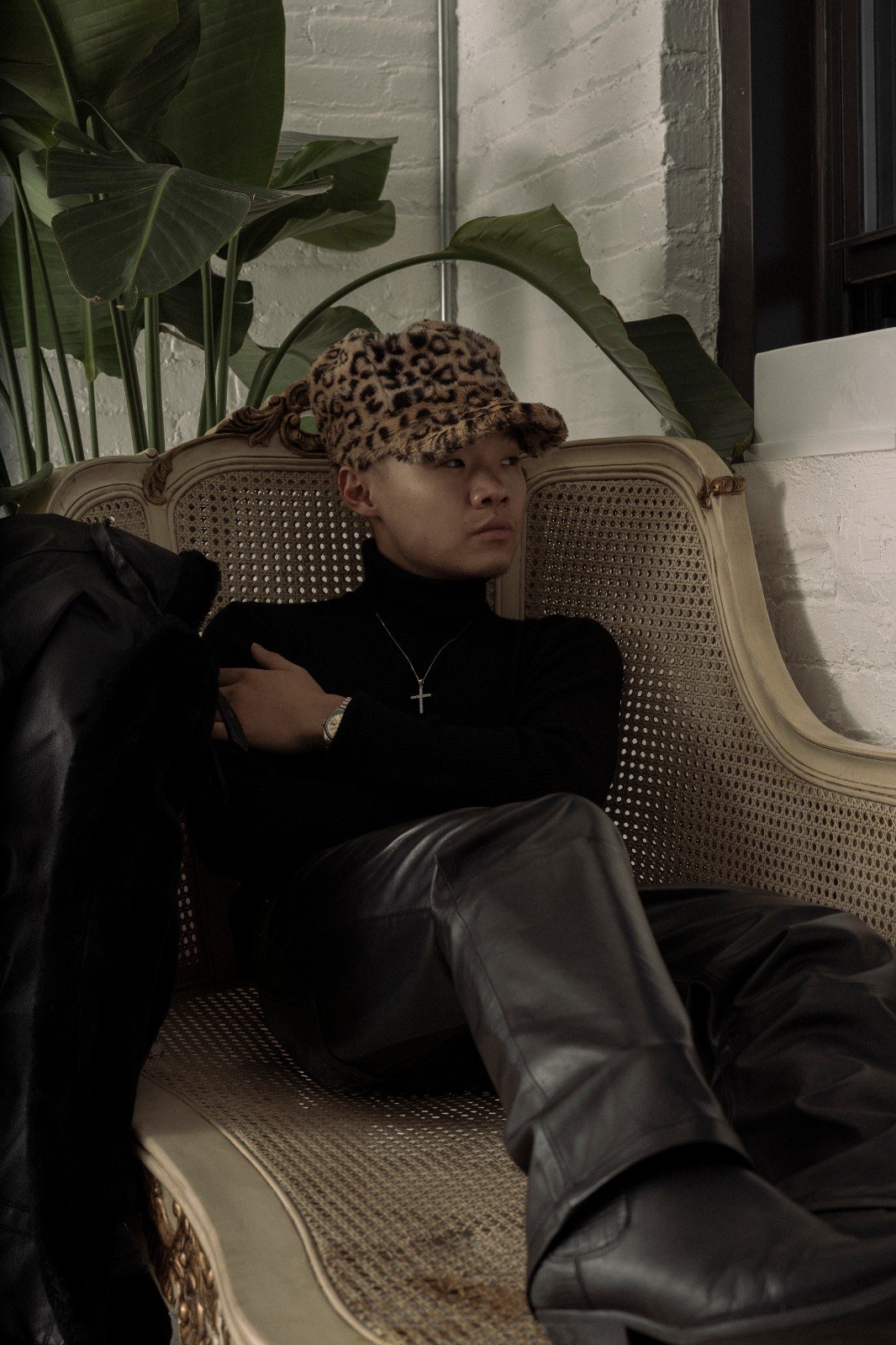
WHEN DID YOU REALIZE YOU WANTED TO RECORD SONGS?
I knew I wanted to record my own song as soon as I started messing around with Eminem’s instrumentals. It was just something that I had to do, and I did many versions of it before I stepped into that closet booth in 2008 with my boy Faisal. I had a cassette player I brought from China that could record over cassettes, and I first used that to record myself with. I would leave voicemails on our landline with my mom’s cell phone. Shortly after the closet booth experience I got a job caddying at a golf course and saved up enough money to buy my own AKG mic and Rokit monitors. I was obsessed like an addict.
WHEN WRITING SONGS, WHERE DO YOU GET YOUR INSPIRATION FROM?
Most of my inspiration comes from my life. My stories, stories of people in my life, and stories I observe around me. I find the more real or rooted the subject matter is, the more convincing I can be with my words and more confident I can be in giving the song life.
As far as switching from English to Chinese, I think one language might be more appropriate than the other depending on the sentiment, the sounds of the actual words whether they sound good with the music in that part of the song, but mostly it’s something that I just feel when I’m writing the song. It’s just got to be natural and not forced, and the music and subject matter usually will guide me.
YOU’VE BEEN PRETTY OUTSPOKEN THIS YEAR ABOUT BLACK LIVES MATTER AND THE UNREST THAT’S BEEN HAPPENING IN THE US. ALSO, ABOUT ASIAN HIP HOP ARTISTS’ NOT SUPPORTING THE AFRICAN AMERICAN COMMUNITY ENOUGH, CONSIDERING THE MUSIC AND CULTURE THEY ARE INVOLVED IN. HAS THERE BEEN ANY PUSHBACK?
There hasn’t been much pushback, but it was harder than I expected to rally support from Hip Hop artists in Asia. It was a bit shocking to me at first how indifferent certain people were, knowing how heavily their career was rooted in black culture. Then after speaking to many of them one on one, I realized that the ideological difference is so significant. I can’t understand why they don’t care, and they can’t understand why I care so much. I realized that in order for them to feel it the way I do, they would have had to spend the years growing up in America as I did, interacting with diverse groups of people like I did. Otherwise how could they possibly understand the triggers and the emotions? I think more than anything, the lack of response during my reaching out just goes to prove that we have a lot more work to do, but that makes me hopeful!
YOU MENTIONED IN A STORY ABOUT ONE OF YOUR TOURS HOW YOUR AUNT, WHO HAD NEVER REALLY BEEN AROUND BLACK PEOPLE, HAD ALL HER PREJUDICES THROWN OUT THE WINDOW IN TWO DAYS BY BEING WITH ONE OF YOUR FRIENDS. DO YOU THINK IT’S POSSIBLE FOR THE SAME TYPE OF THING TO HAPPEN IN ASIA ON A LARGER SCALE?
It is definitely possible and it will happen. But it will take time and lots of willingness to change on both sides. I think the first steps are always communication, and sharing stories, which leads to understanding. It really makes a difference when you get to see first hand that people you didn’t understand or couldn’t relate to are actually exactly just like you sharing the same emotions and aspirations. That’s why music is a great starting place. Music already has the ability to transcend language barriers, we just need to use it correctly.
SOME PEOPLE ARE SAYING NEW YORK IS DEAD. WHAT’S YOUR FEELING ABOUT THE HOME OF HIP HOP IN 2020?
I don’t think New York will ever be dead, that’s just absurd, it’s fucking New York City! I think what people want to say is that back in the 80s and 90s there were more dramatic changes in the different scenes in New York, and now it’s just New York. But that’s just people taking things for granted. I loved the city in 2010 when I first came here, and I love it now in 2020 in the middle of a pandemic. Sometimes in the summer when I’m biking around, I’ll stop and just think to myself, “Wow, I live here in New York City, a place where people from around the world dream about. They look at New York in movies, on posters, they hear about it in songs, but I live here.”
WHAT ARE YOUR PLANS FOR 2021?
In 2021, I’m releasing my first full-length album and I could not be more excited about it. Truly cannot wait to share this baby with everyone. I’m definitely looking forward to traveling again, for tours of course but also just to see my family in China. Since moving to America in 2003, this has been the longest time since going home to see them.
ANY LAST WORDS?
I just want to share something I read in an interview with Kendrick Lamar. I’m not sure what the context of the question was, but he was saying how people always want to figure out what is our purpose of being here. Why are we here? Why did God put us on Earth? He said it’s quite simple - life is hard, existing here is hard. We will experience many difficulties and obstacles during our time here so our purpose is to just help each other out during those hard times, and to love each other when we’re feeling down. If we want to get rid of all the frustrations, the wars, the killings, we all have to go back to that simple word - love.
And that is just something that I need to remind myself of. We all can get lost in this rat race, and sometimes we just need to remember what’s truly important.
